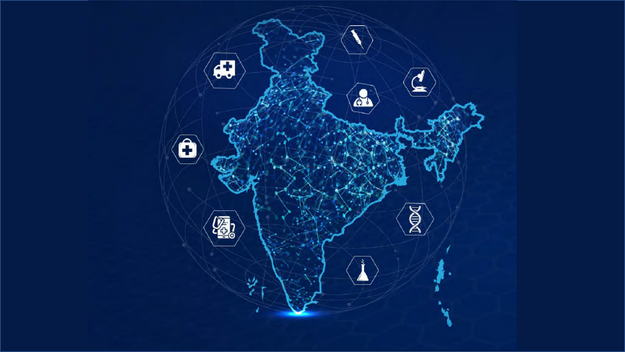

Fintech for Health (F4H) – Special Interest Group (SIG) in Bangladesh Session – II
| Mental health is an invisible problem in low- and middle-income countries (LMICs). Mental illness accounts for approximately one-third of the global burden of disability and represents a significant public health concern. In the recent World Health Organization (WHO) South-East Asia Regional Committee Session was inaugurated with the statement that “There is no health without mental health” – World Health Organization. Around 1 in 7 people live with a mental health condition in the South-East Asia Region. The personal and economic distress and disruptions caused by the COVID-19 pandemic have widened the gaps in addressing mental health challenges, which include scarcity of human resources, low investment, stigma, inadequate prevention and promotion programmers, paucity of data, and lack of services in primary care settings.
The government of Bangladesh recognizes mental illnesses among the top ten priority health concerns in the country. Mental Health has been traditionally considered a taboo in Bangladesh since there is a tremendous level of social stigma irrespective of socio-economic class. Though there is a rise of conversations around mental health, people still try not to speak about mental health issues because communities are largely collectivist. In Bangladesh, about one-third of the country’s population is suffering from various types of mental health issues. According to the National Mental Health Policy, the number of mental health professionals in the country is disproportionate compared to mental health problems and the number of people who need specialized care. There are only 1.17 mental health workers per 1,00,000 people in Bangladesh; of them, 0.13 are psychiatrists, 0.01 are other specialist physicians, 0.87 are mental health nurses and 0.12 are psychologists and other professional mental health workers. On November 9, 2022 ACCESS Health International hosted its second session of the virtual Special Interest Group (SIG) series for Bangladesh. In this SIG, we have showcased two digital mental health solutions, their journey and lesson from Bangladesh and the Philippines market, highlighting how these models are helping vulnerable and marginalized communities who are suffering from a large spectrum of mental health conditions. Around 30 representatives from leading health-tech, mental health and fintech start-ups, payment banks, non-profit organizations, insurance companies, government officials, and healthcare experts participated in the dialogue. Ivy Huq Russell, Founder and CEO of Maya from Bangladesh and Dr. Chelsea Elizabeth Samson, Chief Business and Medical Affairs Officer of KonsultaMD from the Philippines presented two unique digital mental health models at the virtual event. Bangladesh government has taken a proactive stance by undertaking its first-ever National Mental Health Policy 2022 in June 2022. The policy will be the foundation on which to make progress to address the mental health situation of people of the country. The policy and plan call for integration of mental health services across all tiers of the public health care system, taking a holistic approach: (1) Mental health services will be integrated into primary health care through strengthening the existing health care delivery system; (2) Decentralization will be achieved by extending mental health services to divisions, then districts, and upazilas/thanas in both rural and urban areas; and (3) The mental health plan describes using digital platforms to extend the reach of mental health services through ehealth. In this virtual event, Maya presented its journey and how its AI technology is addressing hundreds of health and wellness queries. Maya’s text-based digital wellbeing assistant can listen to everyone’s problems in Bangla, English, and even in Banglish. It’s unique chatbot system can screen the primary queries and around 70% queries are reportedly resolved using artificial intelligence, with about 95% accuracy. Maya app can also understand the urgency of the text communication, e.g. when someone wrote “please I need your help” to “Please! Please! Pease! What should I do know”. Maya team also developed relationships with local law enforce authorities so that any urgent case like suicide can be addressed immediately. Dr. Chelsea from Philippines presented KonsultaMD’s operation and its many mental health campaigns create awareness for mental health problems to provide support through their digital platform. KonsultaMD, HealthNow, and AIDE came together and built this “one full-service health superapp, the new KonsultaMD,” In the presentation Dr. Chelsea has presented some its dynamic products offerings, such as the chat feature to include free mental health support for Filipinos suffering from stress, anxiety and other mental illnesses. KonsultaMD’s goal of becoming the country’s most accessible healthcare platform has reached a new level with the recent launch of KonsultaChat, an alternative way to speak to medical professionals. It allows consumers to chat with a medical doctor anytime, anywhere for the affordable price. After the chat, a patient can always go for an audio or video consultation. Many patients, who are in sensitive position or who are too shy or afraid to talk can use the chat feature instead. The digital mental health services can be taken completely anonymously, and privacy can be ensured. These services can be used alone or in combination with face-to-face therapy. They can also be used in a variety of settings including home, the workplace, schools and through clinician workplaces. Participants in the SIG showed great interest in continuing the dialogue on different Fintech for Health models, and very much willing to explore potential partnerships. The SIG platform has been launched in Bangladesh with the purpose of creating a knowledge sharing space, where presenter and participants can engage in quality discussion and feedback on different fintech for health models. If you would like to participate, please feel free to send me an email [email protected] |


